#greatest ottoman sultan
Explore tagged Tumblr posts
Text
Greatest Ottoman Sultan | Halatihazira
Discover the legacy of the greatest Ottoman Sultan with Halatihazira. Dive into captivating stories, historical insights, and the profound impact of the Ottoman Empire's most influential rulers on global history.
greatest ottoman sultan
0 notes
Text
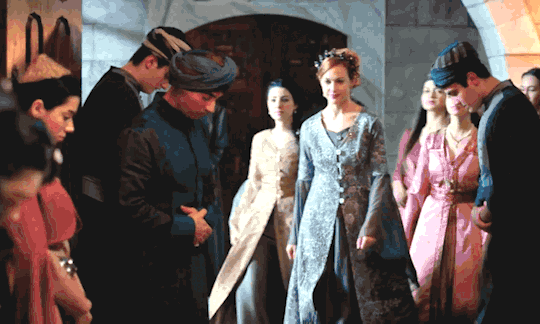


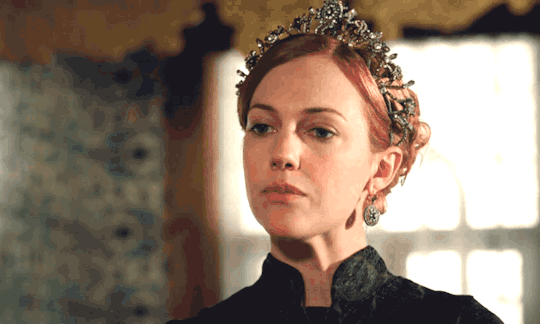
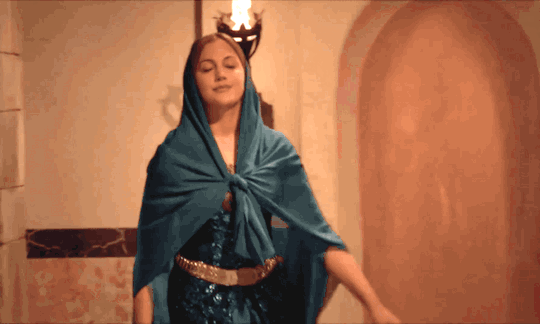


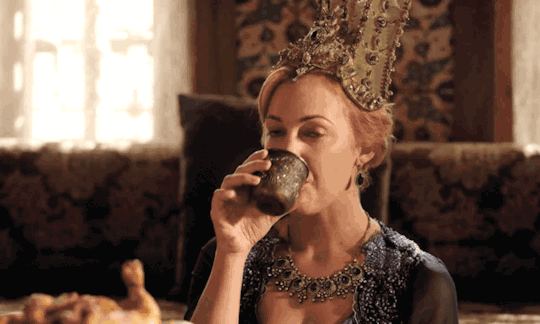


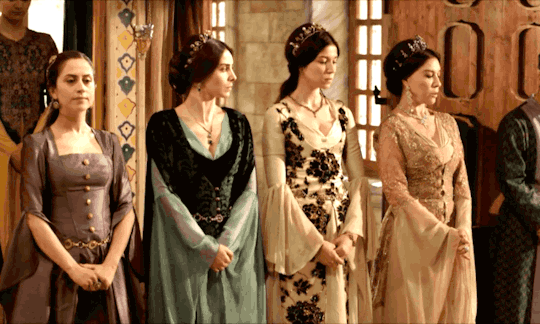
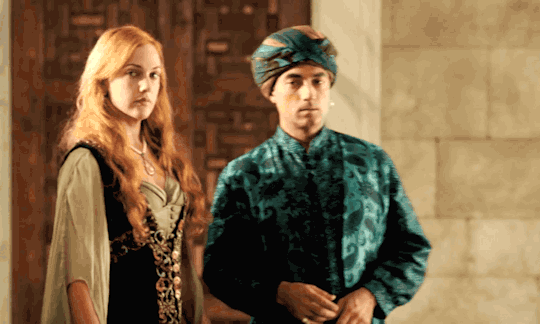
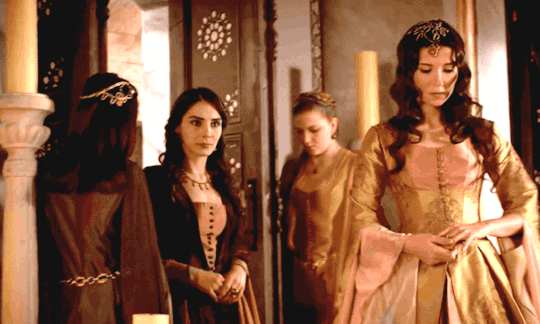

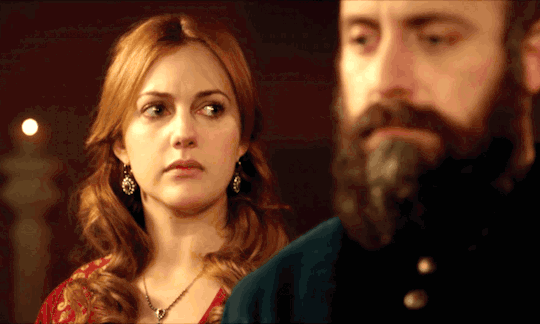

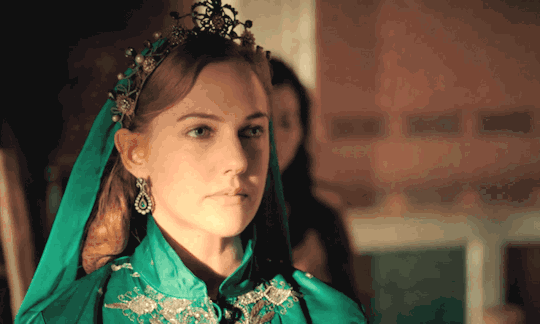


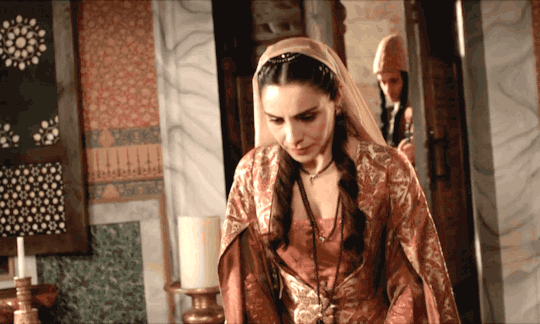
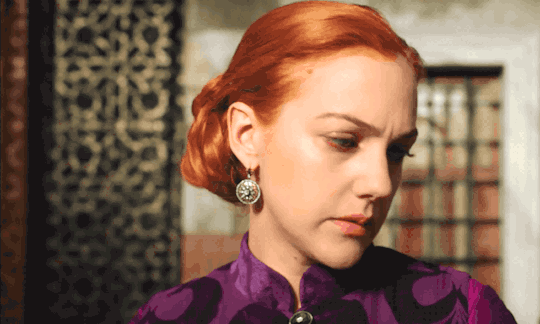

"According to the criterion of stipend, the haseki, or favorite concubine, enjoyed the greatest status in the imperial harem after the valide sultan. The haseki, a slave concubine and no blood relation to the reigning sultan, ranked higher than the sultan's own sisters and aunts, the princesses of the dynasty." - The Imperial Harem: Women and Sovereignty in the Ottoman Empire by Leslie P. Peirce
#Muhteşem Yüzyıl#Magnificent Century#mcedit#weloveperioddrama#perioddramaedit#period drama#perioddrama#historical drama#Muhtesem Yuzyil#MC Haseki AU#Hurrem Sultan#Hatice Sultan#Sah Sultan#Beyhan Sultan#Fatma Sultan#Mahidevran Sultan#Huge Disappointment#The Unjust Orders#Desperate Measures#The Years Pass#The Three Hour Battle#Death in the Hammam#ottoman history#history#New Shocks#Declaration of War#How Dare He?#A Feast in a Time of Mourning#I Will Rule the World#Unexpected Blow
200 notes
·
View notes
Note
I realized you wrote for Rise of empires ottoman
Do you accept obscene articles for Yandere Fatih Sultan Mehmet Khan??
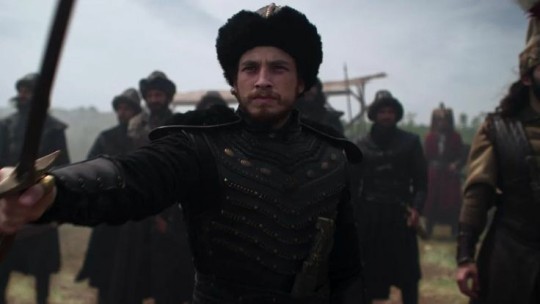
I hope you like it. Yandere Fatih Sultan Mehmet
~ After Mehmet sees you, your fate is sealed forever. You can either be a Princess, a nobleman or an ordinary citizen of another empire.
~ He doesn't care how long it takes or how hard it is to get you. He will make his plans and get you.
~ After bringing you to the Palace, he is determined to make you fall in love with him and love him.
~ When you look at Mehmet's face, it instills in people the feelings of respect and fear towards him. He only smiles when it's just the two of you.
~ He never ceases to surprise you with his many talents. The fact that he is knowledgeable on many subjects and knows seven foreign languages makes you admire him.
~ He is protective of you. He will not allow anyone to disrespect or harm you.
~ He orders a lot of gifts from different parts of the country and from other countries. So, among his wives, you are the richest and the only one with the greatest treasure.
~ He tries not to discriminate between his children. However, when you look very carefully, it is possible to understand that you are more fond of children born to you.
~I must say there is no escape from this man. No matter how far you run, Mehmet will find you and take you back. Because of Mehmet, most likely no one will help you escape.
~ He will write poems for you. The peaceful moments you two experience when you are together are very valuable to Mehmet.
#rise of empires: ottoman#yandere sultans#ottoman empire#yandere ottoman empire#yandere male#yandere historical characters#yandere historical characters x reader#yandere sultan mehmet#yandere sultan mehmet x reader#fatih sultan mehmed#yandere rise of empires: ottoman
236 notes
·
View notes
Photo

Mehmed II
Mehmed II (1432-1481 CE), also known as Mehmed the Conqueror, was the seventh and among the greatest sultans of the Ottoman Empire. His conquests consolidated Ottoman rule in Anatolia and the Balkans, and he most famously triumphed in conquering the prized city of Constantinople, transforming it into the administrative center, cultural hub, and capital of his growing empire. His victories would mark the end of the Byzantine Empire and usher a new era of Ottoman dominance in the Eastern Mediterranean.
Early Life & Family Origins
Born on 30 March 1432 CE, Mehmed was the third son of Sultan Murad II (r. 1421-1451 CE), and Hüma Hatun, a concubine of Balkan origins from Murad's harem. His paternal grandfather was Mehmed I (r. 1413-1421 CE) and traced his ancestry back to Osman I (r. 1280-1323 CE), the founder of the Ottoman Dynasty. Mehmed's name was derived from the name of the Islamic Prophet Muhammad (570-632 CE), and unlike the naming customs of other Islamic cultures, in Turkish tradition, the name Muhammad was generally reserved for the Prophet himself.
Mehmed spent his early childhood in Edirne, until he was moved to the Black Sea city of Amasya and replaced his brother Ahmed as the governor of the province in 1437 CE after his death, despite being five years old. Mehmed's status as a child of the sultan afforded him the opportunity to study under the best scholars of the region. He had many tutors throughout the years, teaching him theology, history, foreign languages, among many other topics. These personal tutors reserved specifically for Ottoman royalty were referred to as lalas and played an essential role in preparing Ottoman royals for the intricacies of administration. Mehmed's readings of various Islamic writings would have a significant impact on his ambitions as a sultan. His desire to conquer Constantinople was inspired by the writings of Arab writers Al-Kindi, Ibn Khaldun, and further cultivated by a hadith (or saying) attributed to the Prophet Muhammad, who prophesized a Muslim army would conquer the city.
Continue reading...
39 notes
·
View notes
Text
I need kösem stans and mahidevran stans to stop with the “Hurrem only had the sultan” “Hurrem made enemies with everyone and didn’t have reliable allies which makes Mahidevran and Kösem smarter” let us use common sense.
Kösem was the most strongest ottoman woman. Had the support of janissaries and the people and was still brutally murdered and in just a span of a day they crowned someone else as regent. And Mahidevran was the most loved in the whole empire. She had everyone by her side and at the end of the day, she ends up in payroll with Hurrem’s son and lost everything.
Hurrem made allies to those who mattered. The Sultan was her greatest ally. The chief enoch of the harem. Rustem Pasha. The ones who mattered were the ones who helped her. Not to mention she herself was smart. Her sons keeping a low profile helped them. Bayzeid was impulsive but there’s a reason why he hated for her death to attack. Hurrem was strategic. That’s what matters.
#prohurremsultan#hurrem sultan#magnificent century kosem#magnificent century#suleiman#mihrimah sultan#mahidevran hatun
34 notes
·
View notes
Text
CD SHORTS: What did the Poles think of Vlad the Impaler?
Were the Poles friends or enemies of Vlad the Impaler? Two contemporary Polish diplomats wrote about him: Jan Długosz and Philippus Callimachus. Długosz recounts a tragic biography, namely how Matthias Corvinus, King of Hungary, unjustly accused him of collaborating with the Ottomans. After 12 years spent "in chains," he sent him to Wallachia to defeat the Ottomans. Although initially victorious, he died betrayed by a "servant". Callimachus calls him "the greatest commander and leader" against the Ottomans. Like Długosz, he states that Țepeș's death ended the freedom of Wallachia, which fell under the rule of the Sultan.
Why were the Poles so favorable towards Țepeș, while in Hungary, Germany, and Russia a very negative image dominated? Simple: the Poles were enemies of the Hungarians. The fact that Matthias Corvinus presented Țepeș as a tyrannical killer of thousands of Hungarians made him sympathetic to the Poles. In addition, Țepeș also fought the Ottomans in person, while Matthias only did so in propaganda reports.
#romania#history#vlad the impaler#wallachia#vlad tepes#vlad dracula#youtube#corpus draculianum#dracula#poland
10 notes
·
View notes
Note
Oo what's the drama with Colin Falconer
I only ever read one book of his, but God was that more than enough. It was about Hürrem sultan... Well, mostly, there's this subplot about this chick named Giulia and guy named Abbas, anyway hon if you ever had trouble with low blood pressure, 10/10 would recommend, otherwise it's not a book for you, in fact I cannot imagine a book less for you if I made it up Goncharov-style. It's basically like Magnificent Century, if it was very much written by a western author and A BILLION TIMES WORSE
Have you ever thought Magnificent Century was a little unfair to Hürrem? In Harem, she's the most evil harlot to have ever been spat onto the face of the Earth by the hell itself. Seriously. Think of any redeeming quality she could have, quick. This Hürrem very pointedly and explicitly does not have it. Her love for Süleyman? Hah! She's been pretending this whole time to make Süleyman her slave! Love for her children? Nope nopity nope! This Hürrem actually lies to Süleyman at her deathbed that Bayezit may not be his son, just so he would kill him, because she wants Selim to take over. Not because she prefers Selim, but because she knows he would be a terrible sultan and destroy the empire she hates so much. Oh, so she's a broken, traumatized kidnapping victim lashing out against her oppressors? Well, I guess, but Falconer downplays this aspect of her character as much as possible, basically only mentioning her feeling "trapped" at the start of the book, just making her seem angry and not at all like she's, you know. Traumatized. So she at least has some empathy towards her fellow slaves? Or anyone else in the entire world??? No! This Hürrem is an absolute evil incarnate, like she does not do a single good thing for anyone else ever, even by accident.
Have you ever thought Magnificent Century didn't quite do the justice to Süleyman the Magnificent? In Harem, he's but a pawn in the hands of eeevil Hürrem, who catches every bait, is fooled by every trick and unwittingly helps her fulfill every evil plan of hers. To Falconer's miniscule credit, he does make an effort to kinda, sorta make reader see what Süleyman sees in Hürrem, and at times he's almost an interesting character, but one of the greatest statesmen of the Ottoman history he is not.
Have you ever thought Magnificent Century can be a little bleak? Well, In Harem, Colin Falconer has made it his life's mission to prove that he's the edgiest little edgelord, to only be beaten by Tara Gillespie. This book is an excellent example of wannabe gritty realism that ends up saying nothing about real world and not feeling real for a fucking second. Like, just focusing on the harem itself, the life there is presented as miserable, which, fine, we are trying to sympathize with these women... I would say if I didn't have a sneaking suspicion that Falconer lowkey hates, or at least does not particullarly care for the other gender. So what you end up with is an endless parade of suffering women that the narrative doesn't give any dignity, agency or empathy. The only exception is Giulia, whose life of repression and meagre attempts at reclaiming agency would be kinda interesting, if they went literally anywhere, but they don't, because Falconer kinda hates women, but readers even moreso. And don't get me started on the sexualization, because if Minette says you enjoy describing the titties too much you, you definitely enjoy describing the titties too much. Which together with the endless abuse of women just makes this book feel all the more gross.
Have you ever thought Magnificent Century has a problem with not being critical enough of the empire? Well, Harem tries that, but then Hürrem is presented as irredeemably evil for trying to ruin the empire and tricking Süleyman into fighting less, which she does not do out of political consideration, even though her arguments make sense and it's probably what IRL Süleyman realized on his own, also saint Mustafa is still there and still as much of a brave soldier destroyed by the evil Hürrem as ever... Basically any effort at critique is demolished as thoroughly as possible by the sheer force of author's hatred for Hürrem.
Have you ever thought Magnificent Century has unfortunately left out or underserved some interesting female personalities of the era, like Süleyman's granddaughters or the female buddies of Selim II.? In Harem, Ayşe Hafsa is... Well, there for a portion of the book, basically twiddling her thumbs, which is nice, because at least they can't ruin her. Mahidevran is yet another female victim without agency, just a bit more prominent than the others. Mihrimah is there for one scene, just to establish she hates her husband, have her exposited on by Rüstem and ABSOLUTELY NOTHING ELSE. Yeah. Like, fuck, this book almost makes me want to appologize to the Magnificent Century Mihrimah, she's a pretty unlikeable character, but at least she is a character. And Nurbanu? Nurbanu who? We don't know 'dem, and we certainly don't have 'dem over here!
Have you ever thought Magnificent Century was unfair to Selim II.? In Harem, he's a monstrous child rapist in addition to a drunken glutton. Also, no Nurbanu, because fuck you, reader, at this point of the book you really shouldn't have expected anything.
Have you ever thought Magnificent Century plays fast and loose with history? Harem can't even get the order of Hürrem's children right. Seriously. For example, Selim is the firstborn in this. Because why pass an opportunity to be pointlessly stupid?
Have you ever thought Magnificent Century is a bit lacking when it comes to medical knowledge? In Harem, an important plot point, by which I mean Selim's conception, hinges on a castrated man conceiving two children with two different women. Like a character in the book explicitly notes that unlike harem eunuchs, guards don't have the entire package chopped off, only balls WELL WHERE DO YOU THINK GAMETES COME FROM, AND YES THEY CAN SOMETIMES STILL HAVE SEX, EVER HEARD OF SHOOTING BLANKS YOU FUCKING GENIUS???
And just in case the things weren't bad enough, there's one final fuck you on the road with the epilogue, which mightily strives to be the stupidest fucking thing I've ever read - for me, a veteran of braindead straight women-oriented porn. Because no BDSM loving billionaire with a sixpack and big schlong can ever top this.
Basically, Falconer is trying to make his wildly historically inaccurate book seem like it's remotely plausible, which, cute, not the first time I've seen a historical novel do that. But at least they weren't trying to justify a man without testicles siring a child... And they didn't do it by claiming that every sultan before Süleyman was this mighty steppe warrior and statesman (after he portrayed Süleyman himself as a dupe completely ensnared by one woman's wicked wiles, again, adorable) and every sultan after him was this lazy, decadent tyrant, often also crazy (because sure, Mahmut II. isn't even in this book, but why the fuck not insult also him for good measure?!), so his argument is that "the line must've been broken". Because the great Süleyman the Magnificent (who again I cannot stress enough how not Magnificent he is in this book) couldn't have possibly sired a failson, his mighty sperm isn't capable of such a feat, it must've been someone else, like A FUCKING EUNUCH.
Now if you excuse me, I've gotten the long-requested review of this heinous book out of my system, please let me either drink myself to death, or detox by watching Good Omens, whichever comes more easily. Thank you and good night.
23 notes
·
View notes
Text

MWW Artwork of the Day (5/18/24) Ottoman Empire (Turkish, 15th-20th c.) Interior: Sultan Ahmed Mosque ("Blue Mosque")(1609-16) Istanbul, Turkey
The upper levels of the interior of this mosque are dominated by blue paint. More than 200 stained glass windows with intricate designs admit natural light, today assisted by chandeliers. On the chandeliers, ostrich eggs are found that were meant to avoid cobwebs inside the mosque by repelling spiders. The decorations include verses from the Qur'an, many of them made by Seyyid Kasim Gubari, regarded as the greatest calligrapher of his time. The many spacious windows confer a spacious impression. The casements at floor level are decorated with opus sectile. Each exedra has five windows, some of which are blind. Each semi-dome has 14 windows and the central dome 28 (four of which are blind).
2 notes
·
View notes
Text
MIHRIMAH SULTAN // PRINCESS OF THE OTTOMAN EMPIRE
“She was an Ottoman princess, the daughter of Ottoman Sultan Suleiman the Magnificent and his wife, Hürrem Sultan. She was the most powerful imperial princess in Ottoman history according to historian Mustafa Selaniki who described her as the greatest and most respected princess and a prominent figure in the so-called Sultanate of Women.”


2 notes
·
View notes
Text


Banja of St. Nicholas.
Banja Monastery in honor of St. Nicholas the Wonderworker, one of the oldest holy shrines of the Serbian land, stands close to the town of Priboj in the very heart of Serbia. The monastery dates back to the time preceding the Nemanjic Dynasty and the establishment of the independent Archbishopric of Serbia by St. Sava, the enlightener of this land. Today it belongs to the Diocese of Mileseva and is the home of a community of nuns. Its main church is dedicated to St. Nicholas (“Sveti Nikola”), and the Church of the Dormition of the Mother of God is attached to its south wall. The foundations of the earliest original St. Nicholas Church survive on the territory of the monastery as well. It is a monument of cultural and historic significance and is under state protection.
The year of its foundation is unknown, though a monastic community for monks existed here as early as the twelfth century. Its abbot was mentioned in the famous Studenitsa Typikon of St. Sava as a participant in the election of a new abbot of Studenitsa. In 1220, the monastery became the center of the Diocese of Dabar and the monastery was nicknamed “St. Nicholas of Dabar”. Later it became the headquarters of the Metropolis of Dabar-Bosna, founded by St. Sava. The monastery was of great importance under the Nemanjic Dynasty as indicated by the graves of some outstanding figures dating back to the reigns of Stefan Dusan (ruled 1331-1346) and his son St. Stefan Uros V (ruled 1346-1355). In the fourteenth century it also had the mausoleum to the Vojinovic family at the time of their greatest power. The present Church of St. Nicholas was built by St. Stefan Decanski (ruled 1322-1331) in 1329. As was the case with most of Serbian monasteries, Banja was repeatedly plundered and devastated during the Ottoman invasion and rule. However, in about 1570 the monastery’s church was considerably renovated.
In the nineteenth century the monastery lay in ruins for over twenty years until January 1899, when Sultan Abdul Hamid II (ruled 1876-1909) gave the Serbian people permission to restore it. The restoration work was carried out until 1905.
In 1974, a rich vestry was opened at the monastery. It is considered to be one of the best preserved and most complete medieval vestries in the Balkans. Visitors can see many church vessels and other items of the past centuries at this ancient monastery, namely crosses, patens, tabernacles and so forth.
The monastery derived its unusual name (pronounced “Banya”, which means “bath-house”.—Trans.] from the thermal (hot) springs on its territory, which are believed to have healing properties.
Text and Photography from OrthoChristian.com
5 notes
·
View notes
Text


Istanbul, Türkiye🇹🇷
Istanbul was historically known as Byzantium and later Constantinople. It is a city where Europe connects Asia, or West connects East, blending diverse cultural and architectural influences from its days as the heart of three great empires: Roman, Byzantine and Ottoman.


Istanbul was historically known as Byzantium and later Constantinople. It is a city where Europe connects Asia, or West connects East, blending diverse cultural and architectural influences from its days as the heart of three great empires: Roman, Byzantine and Ottoman.

Founded around 660 BCE, it became a cultural and political capital in 330 CE under Emperor Constantine the great, who established it as the new Rome. The city flourished under Byzantine rule, with masterpieces like the Hagia Sophia, which became an architectural marvel of the Christian world.

When Fatih Sultan Mehmed II conquered Constantinople in 1453, it marked the end of the 1,123-year-old Byzantine Empire and the beginning of Istanbul’s Ottoman era. The Ottomans transformed the city, adding iconic structures like the Topkapi Palace, the grand Blue Mosque and Suleymaniye Mosque, a work of the famed architect Mimar Sinan. Sinan, regarded as one of the greatest architects in Ottoman history, shaped the skyline with his unique blend of Islamic and Byzantine influences.
Istanbul’s Grand Bazaar and Spice Bazaar reflect its role as a major trade center, where East met West. Even today, Istanbul is celebrated for its vibrant bazaars, cultural festivals and historical landmarks, a living museum of civilizations that shaped its legacy.

0 notes
Text
Halatihazira: Your Daily Update of Current Affairs on Health, Politics, Sports, and More
In a world where one needs to be well-informed, Halatihazira stands like a monument of knowledge and insight. This blog will cover diverse topics from health and politics to sports, tech, history, events, and even online earning tips, with the sole aim of keeping you abreast and inspired. You can learn in-depth on the world's most interesting facts-from the finest Ottoman Sultan to the Water Lantern Festival origins, among other well-curated topics that may make it your go-to source for understanding what's going on in the world.

Greatest Ottoman Sultan
The Ottoman Empire was one of the most dominating dynasties throughout history. Of course, all of them have their great leaders, but some will forever be etched in historical annals-such is the case of Suleiman the Magnificent. He is considered the greatest of the Ottoman Sultans and his reign was the golden age of Ottoman power. Halatihazira traces his conquests under the banner of military triumphs, wondrous architecture, and reforms in the field of jurisprudence which left an indelible mark not only on the Empire but on the world at large. The epitome of splendor was the legacy of Suleiman.
High CPC Keywords in USA
Knowing high CPC keywords in the USA is very useful for people interested in online earning. Whether a blogger, content producer, or a digital marketer, understanding which keywords are demanded could help optimize the content and yield higher ad revenue. Halatihazira explores all the most lucrative keywords - insights into how you can maximize your earnings through strategic content creation.
Simple and Complex Carbohydrates
Carbohydrates can make up the largest portion of our daily diets, but there is a difference in carbs. Halatihazira defines the difference between simple and complex carbohydrates how they impact the human body. Simple carbohydrates including sugars may be absorbed quickly; hence they can provide quick energy, but most of them commonly cause spikes in blood sugar levels. On the other hand, complex carbohydrates like whole grain take a while longer to digest and give the body sustained energy. Once you know the difference between these two categories of carbs, you will be in a good position to choose better food.
10 Karbohydrater Advantages/Disadvantages
While carbohydrates provide the body with the energy needed, they have their demerits. Halatihazira takes it further in highlighting the 10 disadvantages of carbohydrates, showing how overconsumption of carbs would be responsible for weight gain, increased chances of diabetes, and energy crashes. Understanding these disadvantages allows readers to make better choices on the consumptions of carbs and strive for a more balanced diet.
Carbohydrates: Advantages and Disadvantages
Carbohydrates attract more criticism in regard to their pros and cons. Still, the learned approach of Halatihazira is a little more balanced toward understanding both benefits and drawbacks. After all, carbohydrates are the prime source of energy for the body, and they ensure the proper functioning of the brain; but too much carbohydrate intake becomes a cause of health problems. Therefore, this article will provide an adequate guide as to where readers find their place in their dietary decision.
Car Accident Lawyer
Accidents are unfortunate, and handling the aftermath can be overwhelming. When one is involved in a car accident, getting the right lawyer is one's best bet to ensure that all the damages are accounted for and paid for. Halatihazira gives guidance on how to choose the best lawyer for such cases, the main qualities, and they include experience, expertise in handling similar cases, and a successful track record. It would walk them through the right legal support that can navigate the complexities of insurance claims and legal procedures.
Water Lantern Festival Origin
Water Lantern Festival is such a great tradition that has captured the imaginations of people from all around the globe. But how did it all start? Halatihazira traces the origin of this mesmerizing festival, following ancient Asian cultures. Traditionally the floating lanterns symbolized hope, renewal, and letting go of past grievances. However, today, the festival has transformed into the international celebration of peace and unity. Herein lies the story of the rich background of the festival, which will give the reader even more insight into its cultural significance.
Best Insurance Companies in Pakistan
There are numerous insurance companies one can opt for, and sometimes it becomes confusing to decide which of them is the best insurance company in Pakistan. Here, Halatihazira does the work for you by listing the top-notch insurance companies in Pakistan. Be it health, life, or auto insurance, the article throws in light with all the required detailed information on the top providers along with their offerings and customer satisfaction ratings. This comparison helps readers take an informed decision about their insurance needs.
Insurance Companies in Pakistan
If insurance is becoming the need of the hour for a country like Pakistan, understanding its landscape is the necessity of time. Halatihazira brings to the world all of insurance companies functioning in the country with information about their policies, premiums, and options of coverage. Want to insure your house, car, or life? This guide will guide you toward finding the right company that matches your requirements.
Best Insurance Companies in Pakistan
For people who want only the best, Halatihazira ranks the best insurance companies in Pakistan based on reviews and ratings of customers, policy offerings, and financial stability. So, the article will be perfectly designed for readers who want to be sure they have a trustworthy and reliable company protecting them and those they love. This guide was transparent and trust-building to make it easier to find the right insurance provider.
Why Halatihazira Is Your Knowledge Hub
Halatihazira is much more than a blog. It is an all-inclusive guide for news pertaining to the current affairs variety of subjects. Be it health tips of the contemporary day or new ideas on a political event, sports updates, or even new methods on how to make money online. All can be accessed from Halatihazira. The sincerity of the blog towards dispensing well-researched, engaging content ensures readers become informed and inspired.
Through Halatihazira, you will be in a better position to seek deeper information on matters such as history in which you might come across the stories of legacies of great leaders such as the Ottoman Sultans. One might also be offered practical advice on matters that relate to topics in modern life, such as which car accident lawyer best fits your case or what is the best insurance company in Pakistan. If health and fitness work is your thing, then nutrition has been discussed in depth on this blog, especially on carbohydrates and what they consist of in our diets.
Unique information blend with Halatihazira will keep its readers au courant not only of things around them but also dish out some knowledge that they can apply to build on their daily affairs. Established articles in the various fields thus put Halatihazira as a reliable source of information in today's fast motion.
Whether you want to improve your diet, learn more about history's heroes, or stay updated on the current day, Halatihazira has something for everyone. So, visit Halatihazira today and discover the world of knowledge waiting for you!
0 notes
Note
Hi, I saw you writing for Magnificent Century; do you still take requests? If it's a no then feel free to ignore but if it's a yes then I would love to see what would happen if let's just say that Sultan Suleyman has 2 other sons by another concubine but the relationship between them gets really awful and sour throughout the years "even more so that mahidevran and suleyman" and because the concubine has little to no support (like mahi with Ibrahim pasha & hurrem with suleyman) she gets exiled from the palace along with her two sons, but while they lived a poor live they weren't completely cut off of the outside world so through the years the oldest son came to be the greatest seafarer throughout the world making connection and gaining wealth wherever he goes while the second son became one of the best swordsman of his time and since you are familiar with GoT/HotD they are basically the replica of Corlys velaryon/Arthur dayne. So, after a decade of building their names, the sultan and his other children realize that the greatest sea captain and swordsman are actually his sons/their brothers. How would they react ?
Hello. I hope you will like it.
Reader and Suleyman have two sons. Smaller than Mustafa, but older than Mehmed. After Hurrem arrives, Suleyman completely turns away from the reader. The reader knows very well that she has to take his children and leave. Otherwise, Hurrem will find a way to kill her children. The reader is escaping to a distant country with her children. Over the years, her first son becomes a famous sailor and her other son becomes a famous swordsman. Their flour reaches as far as the Ottoman Palace. In fact, it is learned that these two famous men were the Sehzades who escaped from the Palace for a time. Everyone is shocked. Because many thought they were. Most likely, Suleyman will invite his sons to the Palace. He will try to give them the titles of Sehzade. Most likely, neither of them will accept returning to the Ottoman Empire and becoming a prince. Sehzades will be very jealous of your brothers. Mihrimah actually wanted to meet them.
30 notes
·
View notes
Text
Istanbul Shore Excursion: Discover the Best of Istanbul
When your cruise ship docks in the stunning city of Istanbul, you have a limited amount of time to explore one of the world’s most vibrant and historic cities. Whether you're a history buff, a culture lover, or simply looking for a unique adventure, a well-organized shore excursion is key to making the most of your stop. With Istanbul Local Guides, you get just that—a personalized, enriching, and stress-free experience that takes you to the heart of this magnificent city.
Why Choose Istanbul Local Guides for Your Shore Excursion?
Our Istanbul Shore Excursion is designed to offer you a seamless and memorable experience tailored to your interests. Forget the typical tourist traps—our private tours immerse you in the authentic culture and rich history of Istanbul while making the most of your limited time ashore.
Here’s why Istanbul Local Guides stands out:
1. Customized Private Tours
Our shore excursions are flexible and tailored to fit your interests, pace, and schedule. Whether you want to delve into the fascinating history of Istanbul’s iconic landmarks like the Hagia Sophia, Topkapi Palace, or explore the bustling local markets such as the Grand Bazaar, we create a custom itinerary that ensures you don’t miss the highlights.

2. Skip the Crowds
We know time is precious when you're on a shore excursion, which is why we help you skip the long lines at major attractions. Our experienced guides provide skip-the-line access to must-see sites, so you can spend your time enjoying the sights instead of waiting.
3. Expert Local Guides
Our team consists of passionate and knowledgeable local guides who live and breathe Istanbul. They don’t just share the facts, but bring the city’s rich history and vibrant culture to life through stories, hidden gems, and insights you won’t find in guidebooks. Plus, they know the best local spots for a delicious Turkish coffee or traditional lunch.
4. Comfortable and Convenient
We ensure your shore excursion is hassle-free, with private transportation from the port and back to your cruise ship, so you don’t have to worry about the logistics. You can focus on exploring and enjoying your day while we handle the rest. What Can You Expect on Your Istanbul Shore Excursion?
Here’s a sneak peek of what you can experience on your private Istanbul Shore Excursion:
Hagia Sophia: Step into over 1,500 years of history in one of the world’s greatest architectural wonders, once a church, then a mosque, and now a museum.
Topkapi Palace: Explore the opulent home of Ottoman sultans, filled with priceless treasures, sprawling courtyards, and breathtaking views of the Bosphorus.
Blue Mosque: Marvel at the exquisite beauty of this world-renowned mosque with its stunning blue-tiled interior and soaring domes.
Grand Bazaar: Shop like a local in one of the world’s oldest and largest covered markets, where you can haggle for unique souvenirs, spices, and textiles.
Bosphorus Views: No visit to Istanbul is complete without taking in the breathtaking views of the Bosphorus, the waterway that separates Europe and Asia, offering a picturesque backdrop for your adventure.
Maximize Your Time in Istanbul with a Perfectly Planned Day
When you're on a tight schedule, it’s essential to have a well-structured plan. That’s why our team carefully crafts each excursion to ensure you make the most of every minute. Whether it's admiring the city’s skyline from a rooftop terrace, uncovering hidden historical gems, or soaking up the local atmosphere, we provide a one-of-a-kind experience that matches your preferences. Book Your Istanbul Shore Excursion Today!
Make your stop in Istanbul truly unforgettable with a private shore excursion designed just for you. Avoid the hassle of large group tours, and let Istanbul Local Guides show you the best of the city in a way that’s intimate, informative, and fun. Ready to experience Istanbul like a local? Contact us today to book your private tour and embark on a journey through time and culture with the experts!
0 notes
Text
Süleyman sat there, the room spinning around him as the crushing weight of reality settled on his shoulders. The walls of the palace, which had always felt like a fortress of strength and power, now felt like a prison closing in on him. The diary lay open before him, its damning words screaming out the truth he desperately wished he could unsee. But no matter how much he willed it, no matter how much he tried to convince himself it wasn’t true, the evidence was undeniable.
Hürrem had betrayed him.
His mind raced, but no thoughts made sense. There was only a chaotic storm of emotions: betrayal, pain, disbelief, and, worst of all, the cold, hard truth of what he now had to do. The law was clear. The rules he had lived by, the rules that had governed the empire for centuries, left no room for mercy, no matter how much his heart ached to find an alternative.
He could barely breathe, each inhale like a knife twisting in his chest. The air felt thick, heavy with the weight of the decision he was being forced to make. His children—their children—innocent and unaware, played somewhere in the palace, blissfully ignorant of the fate that was now looming over them. The very thought of it sent a wave of nausea through him.
How could this be happening? How could he, the Sultan of the vast Ottoman Empire, the most powerful man in the world, be brought to his knees by something as simple and devastating as love? How could the woman he had loved so deeply, who had stood by his side through so many trials, be the cause of his greatest torment?
But the laws were unyielding. The rules of succession, the preservation of the empire—those were things that could not be compromised. And as much as it tore him apart, he knew that if he allowed this betrayal to go unanswered, it would threaten everything he had built, everything his ancestors had fought for.
But more than that, it was the pain that crushed him. The sheer, unbearable pain of realizing that he was about to lose everything that had ever mattered to him. His beloved Hürrem, the woman who had captured his heart and held it in her hands, and his children, the flesh of his flesh, the future of his empire. All of it was about to be torn away from him in the most brutal, heart-wrenching way imaginable.
Süleyman closed his eyes, hoping to find some respite in the darkness, but there was none. All he could see was Hürrem’s face—her smile, her laughter, the way she looked at him when they were alone, as if he were the center of her universe. And now, to think that all of that had been a lie, that she had shared her intimacy with another man—it was more than he could bear.
His hands shook violently as he clenched them into fists, trying to gain some control over the overwhelming tide of emotions threatening to drown him. His chest felt tight, as though the very act of breathing was becoming impossible. How was he supposed to carry out such a sentence? How was he supposed to look into the eyes of his children, to see the woman he had loved more than life itself, and order their deaths?
The rules were clear, the consequences inescapable. But as much as he knew what had to be done, the thought of it made him feel as though his soul were being ripped apart. He had faced countless enemies on the battlefield, had witnessed horrors and atrocities that would have broken lesser men, but none of it compared to the anguish he felt now.
He felt sick to his stomach, his heart hammering painfully in his chest. Each breath was a struggle, a desperate attempt to hold onto some semblance of control, but it was slipping away from him, leaving him in a freefall of despair.
He could feel the walls closing in, the darkness at the edges of his vision growing stronger, as though his very sight was failing him in his time of need. His mind screamed at him to act, to do what must be done, but his body refused to move. How could he do this? How could he take the lives of those he loved most in the world, even if the law demanded it?
The torment was unbearable, a crushing weight that seemed to press down on him from all sides. He felt his heart freeze, the warmth that had once filled him when he thought of Hürrem and their children now replaced by a cold, hollow emptiness. The very thought of living without them was too much to bear, but the law left him no choice.
His vision blurred, his thoughts becoming more and more chaotic as the reality of what he had to do set in. He could barely breathe, the agony of his decision wrapping itself around him like a suffocating shroud. He could see no way out, no escape from the nightmare he found himself trapped in.
And yet, deep down, he knew what had to be done. The Sultan could not afford to be weak, to be swayed by emotions, no matter how deep they ran. The empire came first—always. But in this moment, as he sat there in his chamber, alone with the truth that had shattered his world, Süleyman was no longer the Sultan. He was just a man—a man who had loved and trusted, and who had been betrayed in the most devastating way imaginable.
And that man, that broken, devastated man, felt his world crumbling around him, and there was nothing he could do to stop it.
1 note
·
View note
Text
The Greatest Tragedy of the 2nd millennium The Fall of Constantinople (May 29, 1453), The dwindling Byzantine Empire came to an end when the Ottomans breached Constantinople’s ancient land wall after besieging the city for 55 days
0 notes